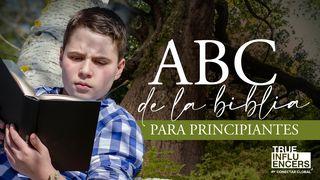Hope Changes EverythingMuestra

In April 1755, after nine years of scholarly toil, writer, poet, and lexicographer Samuel Johnson published a groundbreaking work of literature. This marvelous volume was so intense it was about a foot and a half tall, and when opened would span almost two feet. It became Johnson’s most famous work, and, over the next 150 years, also became highly influential on other works of its type.
It was a dictionary.
The dictionary, actually. Formally titled A Dictionary of the English Language, Johnson’s masterwork was the first of its kind. Johnson’s dictionary was a runaway success, and while his achievement was a marvelous contribution to the English language, in some ways it has created a now-pervasive mindset that exists among us. Because when we get into a disagreement about the way a word should be used in conversation, or whether it’s even a word at all, where do we turn? To the dictionary.
We love the idea of an external authority to tell us how things are defined. If that’s what the book says, then that’s how it is, right? This can be wonderful and helpful, up to a certain point.
Until we start letting our failures define us.
Because our failures and our flaws are writing a dictionary full of lies about us, and if we consult that dictionary as the authority on who we are—if we allow that dictionary to define us—then we’re going to start believing a bunch of stuff that is flat-out untrue.
You may have already experienced something like this. How has pain stolen your joy? What parts of your life have been stung by pain? How did you react to them? Did you open up the dictionary that pain wrote and start believing the definitions you found there? Did you let pain push you further and deeper into a hole you dug for yourself?
Pain is everywhere, because sin is everywhere.
But take heart: hope is everywhere as well.
The Apostle Paul speaks to this in the book of 2 Corinthians. He spends part of Chapter 11 running down all the ways he’s suffered for the gospel, including shipwrecks, imprisonments, beatings, and days without food, water, or sleep. He calls these “boasts,” and then writes, in verse 30, “If I must boast, I will boast of the things that show my weakness.”
Next, Paul talks about how even this type of boasting could make him conceited. And so what has God done in response to this? Let’s pick it up halfway through verse 7 of Chapter 12: “Therefore, in order to keep me from becoming conceited, I was given a thorn in my flesh, a messenger of Satan, to torment me. Three times I pleaded with the Lord to take it away from me. But he said to me, ‘My grace is sufficient for you, for my power is made perfect in weakness.’ Therefore I will boast all the more gladly about my weaknesses, so that Christ’s power may rest on me. That is why, for Christ’s sake, I delight in weaknesses, in insults, in hardships, in persecutions, in difficulties. For when I am weak, then I am strong.”
I love that last line! I mean, I love the whole passage, but that final sentence especially is such a hope-bringer for me. Even a guy as obviously blessed by God as the Apostle Paul, someone who was in constant communion with the Almighty and who wrote a significant portion of a sacred text—even that guy dealt with pain.
We can’t escape painful situations, and we can’t escape other people’s reactions to those situations, either. We can only do the best we can to make good choices in the midst of the pain that comes our way.
Because the pain is coming.
But so is the hope.
Acerca de este Plan

Pain, fear, sin... these don't have to run your life. Discover who God made you to be with practical steps and empowered encouragement, because hope changes everything. (This plan adapted from the book Hope Changes Everything by Lance Lang.)
More
Planes relacionados

¡Levántate! 7 Claves Para Levantarte Y Seguir.

Testigos Del Milagro: La Primera Navidad

Confiando en Los Propósitos De Dios

1 Tesalonicenses: Modelos a imitar

ABC De La Oración ... Para Principiantes.

ABC De La Biblia Para Principiantes
Marcas De Un Discípulo

La Gracia. 7 Claves Para Vivir en Plenitud.
